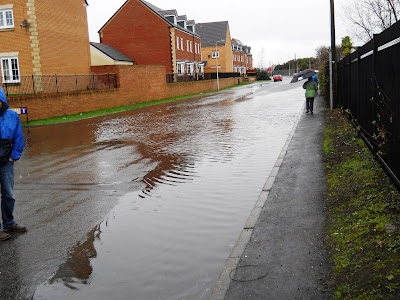This blog may help people explore some of the 'hidden' issues involved in certain media treatments of environmental and scientific issues. Using personal digital images, it's also intended to emphasise seasonal (and other) changes in natural history of the Swansea (South Wales) area. The material should help participants in field-based modules and people generally interested in the natural world. The views are wholly those of the author.
Thursday, 14 January 2021
Humans: Always Surprised by the Weather?
The UN's environment programmes Adaptation report for 2020 confirms, that countries are changing their responses to extreme weather events much too slowly (https://www.theguardian.com/environment/2021/jan/14/countries-adapting-too-slowly-to-climate-breakdown-un-warns). Countries, all over this planet, can't have failed to notice, that extreme weather events, like flooding, fires and hurricanes, are increasing in frequency. In spite of this, the UN notes, that they are still putting too little funding into dealing with their environmental effects. Of course, they might have to spend less money on such events, if climate change was brought under control. Unfortunately, this is not something that can be achieved quickly (even with the best of intentions).
Subscribe to:
Post Comments (Atom)
-
I n the UK and US, a pparently popular and successful vegan/vegetarian restaurants are reportedly closing or adding meat to their menus ( ...
-
Early ripening fruit may seem convenient but some folk think it confirms environmental stress. There's also a possibility th...


%20mating%20NWCW.jpg)


No comments:
Post a Comment